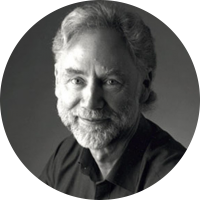Terry Smith, FAHA, CIHA, is Andrew W. Mellon Professor of Contemporary Art History and Theory in the Department of the History of Art and Architecture at the University of Pittsburgh, and Professor in the Division of Philosophy, Art and Critical Thought at the European Graduate School. He is also Faculty at Large in the Curatorial Program of the School of Visual Arts, New York.
His major research interests are contemporary art of the world, including its institutional and social contexts; the histories of multiple modernities and modernisms; the history and theory of contemporaneity; and the historiography of art history and art criticism. He has special expertise in international contemporary art (practice, theory, institutions, markets), American visual cultures since 1870, and Australia art since settlement, including Aboriginal art. Current graduate students under his supervision are working on topics such as critical global practices, new media art, alternative avant-gardes, artists’ collectives, the history of conceptualism, aspects of cultural policy, and histories of art writing. He teaches the undergraduate course Introduction to Contemporary Art, and a graduate seminar on theories of modernity and contemporaneity.
Terry Smith utilized his GSC Faculty Fellowship award to support a public discussion on the theme Coevality: Ethical Being in a Time of Total Change.
"Does the Framework Convention on Climate Change, formally affirmed by 195 nations in Paris on December 12, 2015, signal a turning point in our ability to work in the common interests of all sentient beings and of the worlds in which we live? The negotiators acknowledged the inequalities evident between and within nations, the differences between cultures, individual and group diversity, and the uneven development of institutions, while at the same time presumed the equal value of all parties, places, and polities. The Convention creates a framework for a process for addressing the global problem of climate change that, if followed closely, will be pursued in the same spirit in which it was conceived--one that affirmed, rather than denied, coevalness in all relationships."

